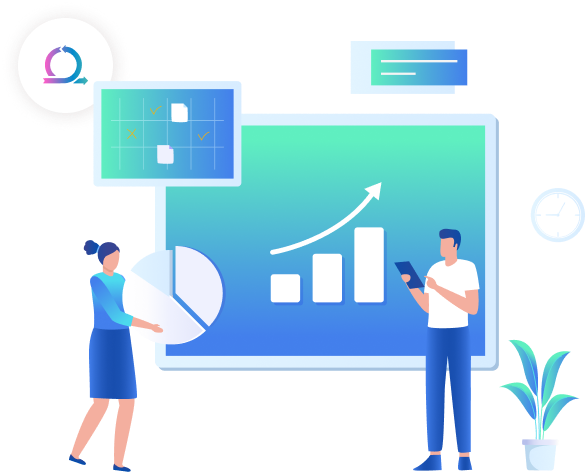End-to-end app development and extensive Project management & development methodologies

Achieving business objectives requires tailored strategies and solutions developed per your budget and business needs. Ecosmob helps transform your dream software into reality on time with project management methodologies such as Agile, Scrum, Kanban, LEAN, and Six Sigma. With our expertise, keep your costs under control and generate the potential for learning and innovation.
Goals of Project Management &
Development Methodology
Both disciplines have distinct goals but often overlap in their intent and application.
Scope Definition and Management
Risk Management
Continuous Improvement
Time Management
Resource Management
Adaptability
Cost Management
Stakeholder Communication
sustainability
Quality Assurance
Integration Management
Services Offering
Our innovative solutions equip you with advanced technology, setting you apart in the marketplace.
Ready to Innovate Dreams into Reality?
Ecosmob Advantage
Ecosmob goes beyond traditional software development to offer scalable solutions and partner in technological advancement.
When you choose Ecosmob, you’re not just selecting a service provider; you’re gaining a technology partner committed to your business’s long-term success. Experience flexibility, innovation, and a collaborative relationship beyond software development and deployment.
Ecosmob offers flexibility and serves as a tech development partner that goes beyond mere software development and deployment.
Processes
communication
Approach
Hiring
model
FAQs
What is Scrum?
Scrum is a subset of the Agile framework that facilitates team collaboration on complex projects. It revolves around set periods called sprints, at the end of which a potentially shippable product increment is delivered.
How are project scope and objectives determined?
Project scope and objectives are typically determined through stakeholder interviews, requirements-gathering sessions, and document analysis. The content defines the boundaries of what the project will achieve, while objectives are specific goals or outcomes to be met.
Why is risk management critical in project management?
Risk management allows teams to anticipate potential challenges and prepare solutions in advance. By identifying, analyzing, and prioritizing risks, project managers can allocate resources more efficiently and increase the likelihood of project success.
How often should project progress be reviewed?
The frequency of project reviews often depends on the development methodology and the nature of the project. For instance, in Scrum, reviews are typically done at the end of each sprint. However, reviews might be less frequent for longer-term projects or those using the Waterfall methodology.
What is a project lifecycle?
A project lifecycle refers to the sequential phases a project goes through from initiation to completion. It often includes steps like initiation, planning, execution, monitoring & controlling, and closure.
